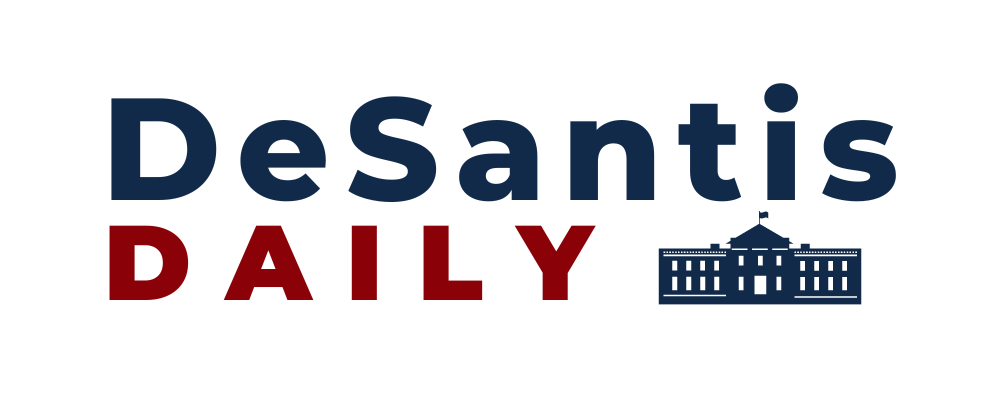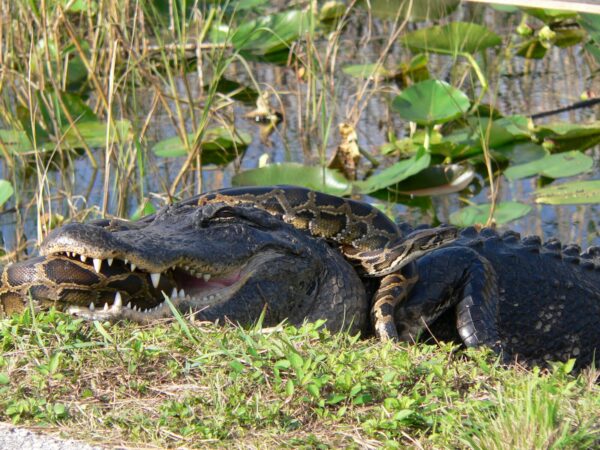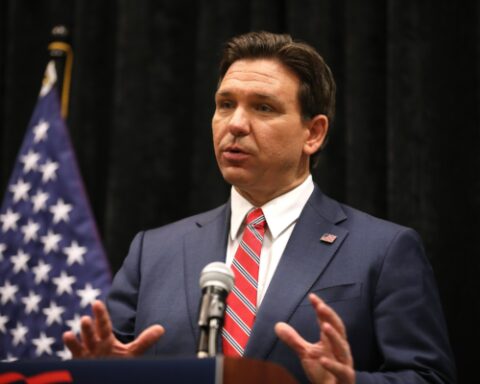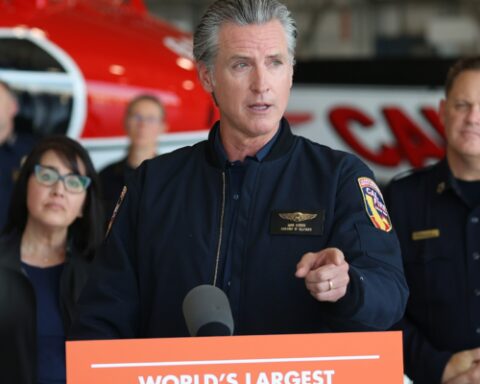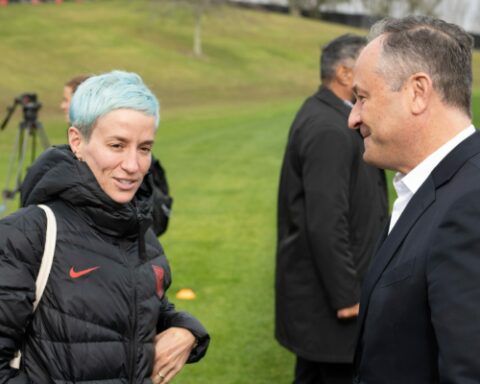Governor Ron DeSantis announced a new partnership with a Miami-based company aimed at dramatically reducing the population of invasive Burmese pythons that have devastated Florida’s Everglades ecosystem.
The initiative, unveiled October 21 at the John C. and Mariana Jones/Hungryland Wildlife and Environmental Area in western Martin County, underscores the governor’s focus on practical, results-driven conservation policy.
“These things will take out a deer,” DeSantis said of the massive snakes. “I mean, it’s unbelievable what they’re able to do.”
Standing alongside Florida Fish and Wildlife Conservation Commission Executive Director Roger Young, DeSantis described the partnership as part of a broader effort to protect native wildlife through innovative public-private collaboration.
The partnership involves INVERSA, a Miami-based company that “helps ensure biodiversity preservation through the ethical removal of invasive species.”
The company converts python hides into high-end leather products such as wallets, boots, belts, and even footballs and baseballs. “We help government agencies manage invasive species by connecting their biomass to the private sector, and in this case, that means fashion, turning invasive species into luxury grade leathers,” said INVERSA CEO and co-founder Aarva Chavda.
DeSantis called the decision to team up with INVERSA a “bold” one, saying it has already yielded remarkable success. “As of today, we can celebrate the fact that they’ve delivered on their objective, 1.5 years ahead of schedule,” he said. Since the partnership began May 1, the number of pythons removed from the Everglades has tripled.
“In July, there were 748 removals, compared to 235 in July 2024,” DeSantis said. “We had 1,022 removals across May and July of this year compared to 343 during the same period last year. In the month of July alone, the program removed more pythons than the entire 12 months pre-transition.”
INVERSA has its own incentives to succeed. The more snakes removed, the more materials it can repurpose into profitable goods — an approach DeSantis praised as aligning economic opportunity with environmental restoration. “We’re harnessing the incentives of the private sector to be able to do what I think everybody wants to see — get these Burmese pythons out of the Florida Everglades,” he said.
The company’s technological advances could accelerate the process further. “Our investments in technology will make that happen,” Chavda said. “Last week we had our first AI-enabled positive visual python detection from an aerial system, and yesterday we finalized our predictive behavioral AI model that will improve python capture by up to 50 times.”
Florida wildlife officials have long encouraged residents to help control the python population. On private property, the snakes can be humanely killed with the landowner’s permission, and there is no bag limit. Burmese pythons and other nonnative reptiles can also be removed year-round from 32 FWC-managed areas across the state.
Adult pythons typically measure between 6 and 9 feet, though the largest caught in Florida stretched more than 18 feet, according to the FWC.
For DeSantis, the effort represents a model of conservative environmentalism — one that leverages private enterprise, cutting-edge technology, and local initiative to address a problem government alone has struggled to solve.
[READ MORE: Trump Calls Obama’s Presidential Library a “Disaster in Design and Management”]
